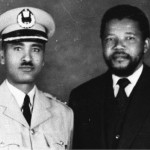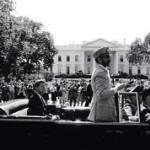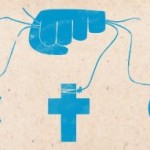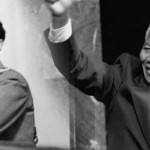 Forty years ago Emperor Haile Selassie of Ethiopia was overthrown. It was a blow for all Rastafarians, who revere him as a god – and for those Rastafarians who had emigrated to Ethiopia, life suddenly got more difficult.
Forty years ago Emperor Haile Selassie of Ethiopia was overthrown. It was a blow for all Rastafarians, who revere him as a god – and for those Rastafarians who had emigrated to Ethiopia, life suddenly got more difficult.
In 1948 Emperor Haile Selassie gave 500 acres (200 hectares) of land at Shashamene, 150 miles (225km) south of Addis Ababa, to black people from the West who had supported him in his struggles with Mussolini’s Italy.
The first settlers to arrive were African-American Jews, but they soon moved on to Liberia or Israel. After them, in 1963, came a dozen Rastafarians, and the numbers swelled after Selassie made an emotional visit to Jamaica three years later.
The Rastafarians’ adoration of Selassie stems from the words of black consciousness leader Marcus Garvey, who said in 1920, “Look to Africa, when a black king shall be crowned, for the day of deliverance is at hand”. When Selassie was crowned emperor, 10 years later, many thought Garvey’s words had come true.
Another belief widely held by Rastafarians is that they will eventually return to Africa – the continent their ancestors left in slave ships long ago. And quite often, according to Erin MacLeod – author of Visions of Zion: Ethiopians and Rastafari in the Search for the Promised Land – “back to Africa” is treated as synonymous with “back to Ethiopia”.
Today there are up to 800 Rastafarians at Melka Oda, near Shashamene, as well as a few in the capital, Addis Ababa, and in the city of Bahir Dar. But how has life turned out for them in Ethiopia – and what do Ethiopians make of their Rastafarian neighbours?
In 1974, the communist Dergue regime overthrew and imprisoned Selassie – who died the following year – and began purging all vestiges of the imperial dynasty. Land was nationalised, including the land granted to foreigners at Shashamene, and some Rastafarians settlers fled.
Even today, long after the fall of the Dergue, Selassie remains a controversial figure in Ethiopia, and many look askance at the Rastafarians who venerate him.
“There are people who have extreme love for Selassie, the modernising leader who did so much for the country, but others say he was a representative of a colonial empire, was enamoured by the opulence of Europe and did not lead the country in an equitable way,” says MacLeod.
There have been other problems too.
One is “ganja” – marijuana – considered a herb of religious significance by Rastafarians, who sometimes refer to it as the “wisdom weed” or “holy herb”.















![*Who is the singer of this amazing song? [Official Music Video] ኢትዮጵያ/ዩቶፒያ ሕይወቴ Utopia/Ethiopia No 1 song in Greece and European countries ኢትዮጵያ/ዩቶፒያ ሕይወቴ (Utopia/Ethiopia my life) ምወደሽ እናቴ (that I love as my mother) ሳደንቀሽ እኖራለሁ (I will live admiring you) እስከ እለተ ሞቴ። (until the day I die) Until now no one know the singer of this amazing song. But But here is our first guess. She could be Ethiopian Jew singer Cabra Casey ከብራ ካሳይ.](https://www.ethiopianopinion.com/wp-content/uploads/2013/12/2899777657_47b197b953_z-150x150.jpg)












Join Conversations